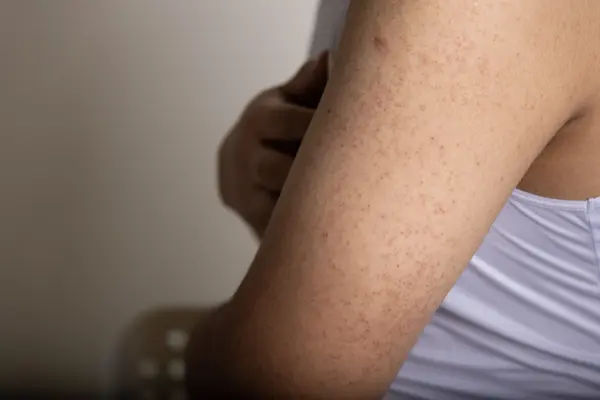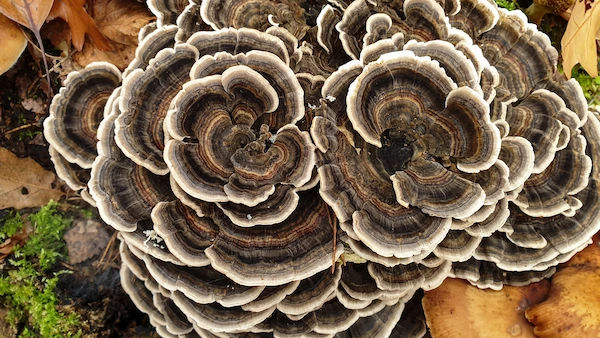- female
- 40 Years
- 20/02/2025
I've noticed that when I have to stand for long periods, my feet start swelling, and I get these little red spots on my feet and calves. It seems to happen pretty quickly after I start feeling some itchiness down there. The spots start off small but then kind of join together to form larger patches. My skin doesnt peel, but my feet do get pretty swollen. It usually takes a couple of days for the spots to go away, and by the next day, the swelling decreases if I rest. I also get this when I fly for long hours. I had a Doppler test done, and they said there's no DVT. What could be causing this? And is there anything I should be doing to prevent it?
Answered by 1 Apollo Doctors
There could be varicose veins which might be minimal,visit Vascular surgeon for evaluation and appropriate management
Dr. Ibrahim Suggests...
Consult a Dermatologist
Answered 04/07/2025
0
0

More Dermatology Health Queries
View allI recently saw a doctor for a skin infection and was told it's a fungal infection. They prescribed me Candiforce 200. When I looked it up online, it seems to be more for mouth, throat, and lung issues. I'm a bit confused and worriedwill it actually help with my skin infection? I'm thinking of seeing a dermatologist soon but would love some clarity before that.
Yes it will wor k for fungal infection,better to use it under doctors guidance,visit Dermatologist for appropriate management
Answered by 1 Apollo Doctors
I'm dealing with a patchy and uneven beard with low density. My sideburns are also sparse and not very thick. Can you give me some advice on how to stimulate facial hair growth for a thicker, denser, and more even beard?
To stimulate facial hair growth and achieve a thicker, denser, and more even beard, you can consider using minoxidil solution. Apply 1ml of minoxidil solution twice daily directly to the areas where you want to promote hair growth. Make sure to wash your face before applying and allow it to fully dry before applying any other products. Consistent use over several months may help improve the density and thickness of your beard.
Answered by 1 Apollo Doctors
I've been dealing with hair fall ever since I turned 20 and I've tried relying on stuff like minoxidil and procepia. They seem to work only as long as I use them, and stopping them makes the hair fall start up again. But once I got to college, I noticed that after I quit masturbating, my hair seemed to stop falling out. It's been three months since I last did, and my hairs actually looking better. So, I'm kind of curious, does masturbation really cause hair fall?
Thats unusual,visit General Physician for appropriate approach.and maintain balanced diet and healthy lifestyle
Answered by 1 Apollo Doctors
Disclaimer: Answers on Apollo 247 are not intended to replace your doctor advice. Always seek help of a professional doctor in case of an medical emergency or ailment.




